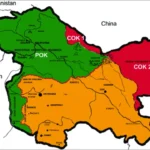New Delhi, May 29, 2025 — In a bold assertion underscoring India’s rapid digital transformation, Union Minister of Communications Jyotiraditya Scindia recently declared that India is on course to become the “Data Capital of the World.” The announcement, made during a high-level industry summit in New Delhi, reflects the country’s sweeping efforts to bolster digital infrastructure, promote data sovereignty, and fuel innovation across sectors.
With its thriving digital economy, rising internet penetration, and massive pool of skilled IT professionals, India is positioning itself at the epicenter of the global data revolution.
Why India Holds the Edge in the Global Data Race
India’s ability to lead the global data landscape arises from a unique combination of strengths and strategic advantages.
- A Vast User Base: India boasts over 850 million internet users, making it the second-largest online population globally. This vast base generates massive amounts of data daily through social media, e-commerce, financial transactions, and digital health records.
- Expanding Data Centers: The government, along with private players like Reliance Jio, Hiranandani Group (Yotta Infrastructure), and AdaniConneX, is investing heavily in data center parks across cities such as Mumbai, Chennai, Hyderabad, and Bengaluru. These hubs are designed to meet global standards in data storage and cybersecurity.
- Digital Public Infrastructure: Flagship programs like Aadhaar, Unified Payments Interface (UPI), and DigiLocker have digitized identity, payments, and document management, leading to a structured and scalable public data ecosystem.
- Government Push for Data Localization: India’s policy framework emphasizes data sovereignty, encouraging companies to store sensitive data within national borders. This has incentivized both domestic and multinational firms to expand local storage and processing capabilities.
A Vision Aligned with Global Trends
While addressing the gathering, Minister Scindia highlighted how data is a driving force behind the evolution of modern economies and a key catalyst for future growth:
“Data is the new oil—and India, with its digital depth and scale, is poised to lead the world in refining, processing, and responsibly using this resource. We are not just a data consumer, but a data powerhouse in the making.”
The minister also highlighted the role of Digital India, a flagship government program launched in 2015 that has laid the foundation for a connected, empowered society. Initiatives like BharatNet, which aims to connect 250,000 village panchayats with high-speed internet, are expanding digital access to remote corners of the country.
A Thriving Tech and Startup Ecosystem
India’s vibrant startup ecosystem, particularly in sectors like fintech, edtech, and healthtech, thrives on data-driven innovation. With over 100 unicorns and thousands of tech startups, India has become a breeding ground for AI-powered solutions, real-time analytics, and digital transformation strategies.
The availability of structured datasets, government support through funding and innovation hubs, and a large talent pool of data scientists and engineers give India a significant edge in this domain.
Strategic Global Collaborations
To cement its status as the world’s data capital, India is also engaging in strategic partnerships with global technology firms. Cloud service providers like Amazon Web Services (AWS), Google Cloud, and Microsoft Azure are investing billions in setting up hyperscale data centers within the country. These collaborations are expected to accelerate the development of secure, scalable, and sustainable digital ecosystems.
India is also a key participant in global conversations on cross-border data flows, privacy laws, and ethical AI—ensuring its voice is heard on how data is managed and regulated internationally.
Challenges and the Road Ahead
Despite its promising trajectory, India faces challenges in its data journey. Concerns about data privacy, cybersecurity, and infrastructure gaps in rural areas remain. The successful passage and implementation of the Digital Personal Data Protection Act will be critical in establishing trust and transparency.
The government must also ensure that digital growth is inclusive, so rural and underserved populations benefit equally from India’s data-driven future.
Conclusion
India’s ambition to become the ‘Data Capital of the World’ is not just visionary—it is achievable. With strong government backing, expanding digital infrastructure, and a youthful, tech-savvy population, the nation is laying the groundwork to lead the global data economy. As the world increasingly turns to data for decision-making, innovation, and governance, India is set to be at the forefront of this digital revolution.





